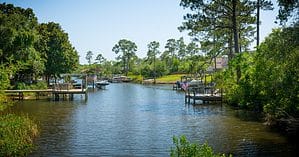With the ushering in of modern observational science in the eighteenth century, ideas around the age of the Earth began to shift. Before science, the Bible defined popular belief about the planet’s age. As science became the standard by which to define reality, the age of the Earth changed drastically. How old is the Earth according to the Bible? We’ll look at this question now.
How Old is the Earth According to the Bible?
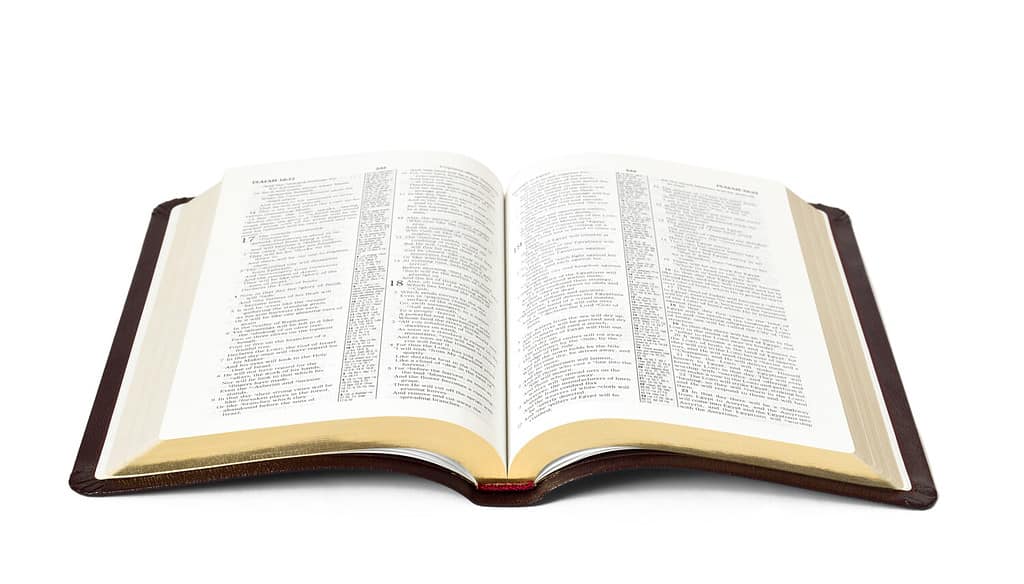
The Bible infers that the Planet Earth is about 6000 years old.
©robert_s/Shutterstock.com
According to the Bible, Planet Earth is about 6000 years old. While this number isn’t specifically mentioned in the Bible, it is inferred by scholars based on other information provided. This age fluctuates by a few decades depending on which authority is being studied.
Adam, the first human being created by God, was made on the sixth day of creation. From this sixth day, there are about 2000 years of human generations defined between Adam and Abraham throughout the Book of Genesis. Since Abraham was most likely alive around 2000 BCE, this puts the age of the Earth at roughly 6000 years old.
What is the Importance of Adam’s Family Tree?
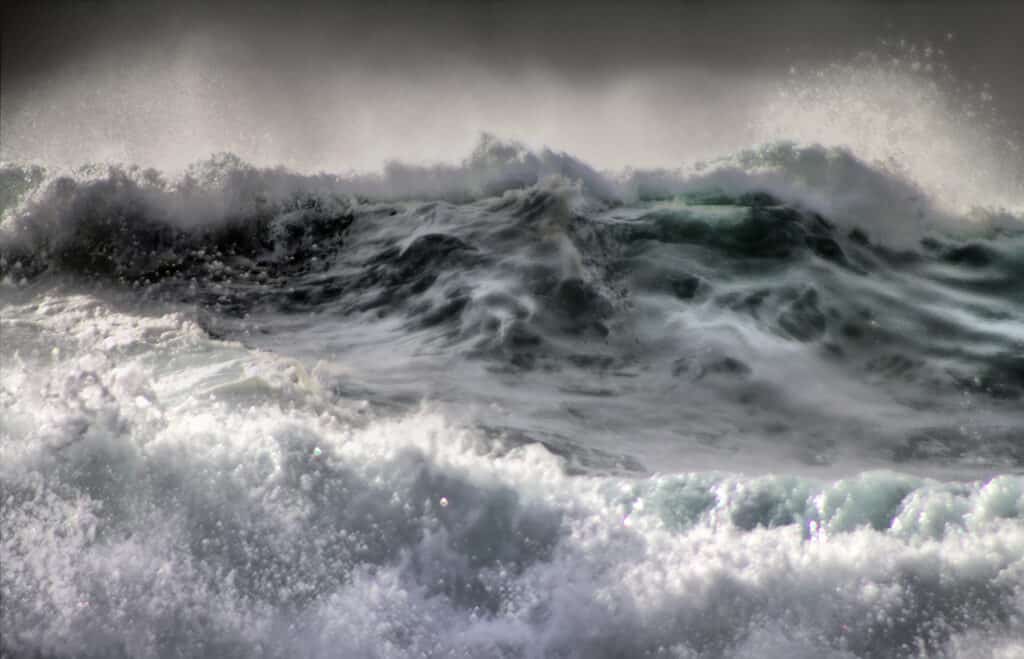
When the Great Flood of the Bible happened, all humans died except for Noah and his family.
©Maximillian cabinet/Shutterstock.com
The Christian argument that points to Adam’s genealogy as a way to cement the age of the Earth doesn’t leave room for millions of years. Adam was made during the creation week as the first human, and from there, a recorded lineage exists. While some of the people in that lineage had exceptionally long lives, none of their lifespans are long enough to justify the passage of millions of years.
Adam, the first human ever created, came into existence as an adult. He was paired with Eve, and both humans were immortal until they fell from grace. After the fall, they became mortal, though they and their descendants lived for a much longer period than humans do today. The Bible records the ages of these descendants, and when these descendants had children, for many generations.
The Great Flood happened, and all humans died except for Noah and his family. Noah’s lifespan was exceptionally long like those that existed before the floods at around 950 years. After the flood, subsequent generations had decreasing lifespans until the time of Jesus, when ages stabilized into the human lifespan we’re familiar with today.
The Great Flood’s Timing in the Bible and Science
Biblical adherents who do not believe in the accuracy of scientific interpretation of the fossil and geologic records attest that the Great Flood explains why geologic records exist. When the Great Flood occurred, it created the rock layers with embedded fossils that scientists continue to find today.
Some Christians believe that the impact of the flood was so drastic that it compressed the globe, its rocks, and dead animals. This has made it appear older than it is.
Most scientists and Christians agree that some type of Great Flood occurred, though that’s where the agreement ends. Scientists put credence into tools like carbon dating to inform theories about the Earth’s age instead of believing that immense water pressure affected the world’s rock layers.
Cultures throughout the world tell of an ancient cataclysmic flood event, though the timing varies based on the culture. The Hopi in North America, the Inca in South America, the Mesopotamians in the Middle East, and other early cultures have eerily similar flood stories.
There is no hard evidence that a worldwide flood took place simultaneously in all of these places. However, catastrophic floods that changed the fabric of these societies most likely occurred in isolated incidents within a few thousand years of each other.
How Old is the Universe According to the Bible?
The Book of Genesis is the first book of the Bible, and the first lines of this book address the creation of the Earth and the universe. According to Genesis 1:1, the earth was created on the first day of creation. The words used in Genesis 1:1 are as follows: “In the beginning, God created the heavens and the Earth.”
Since nothing existed before the event called creation, the universe is as old as the Earth. This is because it was created on the same day as Earth. This means that the universe is about 6000 years old according to the Bible.
However, Christians also accept that the exact timeline of creation is beyond what can be conceived while living the human experience. This is evident in Ecclesiastes 3:11: “He has made everything beautiful in its time. He has also set eternity in the human heart, yet no one can fathom was God has done from beginning to end.” This, for some, is where Christians begin to allow a belief in science to inform the narrative about Earth’s creation.
How Old is the Earth According to Science?
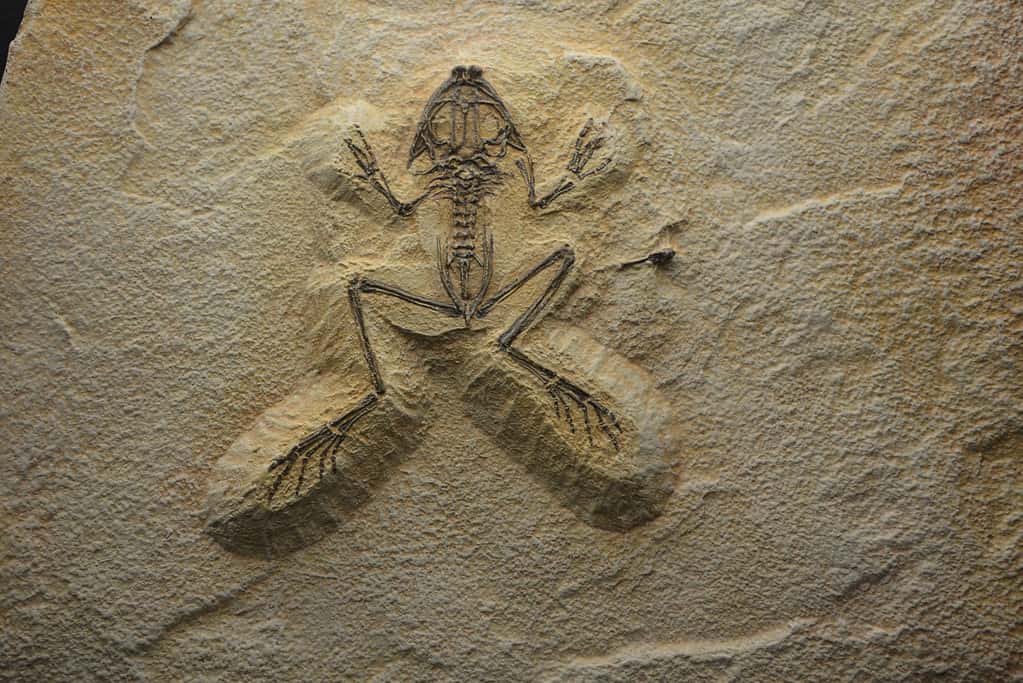
Fossil records, in correlation with their rock surroundings, help scientists date when an animal was alive.
©Paula Karu/Shutterstock.com
According to the scientific community, the Earth is about 4 and a half billion years old. As the scientific discipline of geology evolved, scientists began to understand that the planet is very old.
They developed this theoretical age by studying certain isotopes in various layers of rocks on our planet. They also study how those rocks have been created and moved over time.
Prevailing theories in today’s scientific communities arose in an attempt to explain the physical world around us in measurable terms. These measurable terms can be repeated and altered as science continues to evolve.
The Theory of Evolution relies on the notion that the planet is billions of years old. Evolution states that life emerged as one single-celled organism. For this organism to evolve into the diversity found on Earth today, a huge swath of time covering billions of years is needed.
Fossil records, in correlation with their rock surroundings, help further this discussion. They also continue to legitimize the theory that the Earth is a very old place.
How Old is the Universe According to Science?
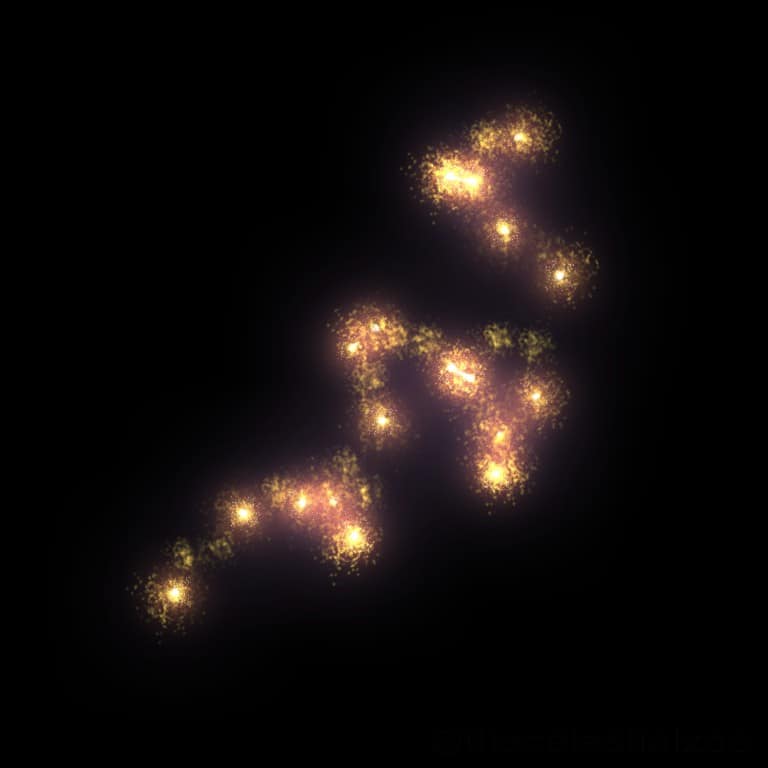
Scientists calculate how quickly galaxies move away from us to guess the age of the universe.
Scientists believe the universe is about 11 to 14 billion years old though this isn’t a hard fact. The universe exploded from a singularity in an event called the Big Bang. Since then, the universe has been expanding. However, this expansion hasn’t been occurring at a constant rate throughout eternity.
These age estimates are primarily based on two forms of observation: looking at the oldest stars, and tracking the expansion of today’s universe. Based on what we understand about how stars function, studying the composition of the oldest stars allows scientists to reverse engineer the process. This reverse engineering informs guesses about how long ago these stars started forming.
To understand how the universe is expanding, it’s important to remember that space is not empty at all. Scientists call the mysterious force in open space dark energy. It is this dark energy that continues to grow the expanse of the known universe.
Scientists attempt to measure this growth by paying attention to how quickly galaxies outside of the milky way are moving away from us. Theories regarding the nature of this movement are always evolving.
The photo featured at the top of this post is © iStock.com/NathanMerrill
Thank you for reading! Have some feedback for us? Contact the AZ Animals editorial team.






